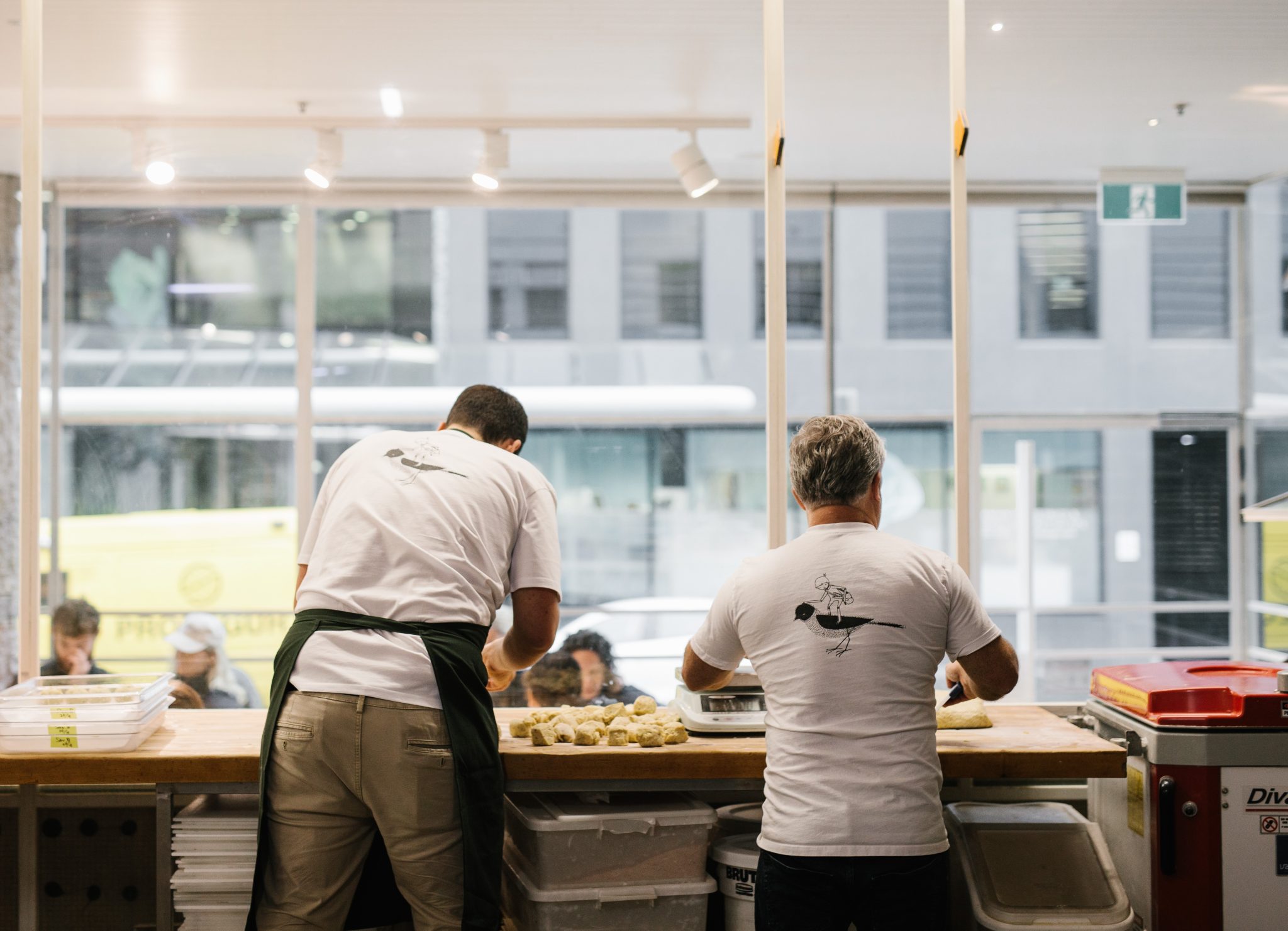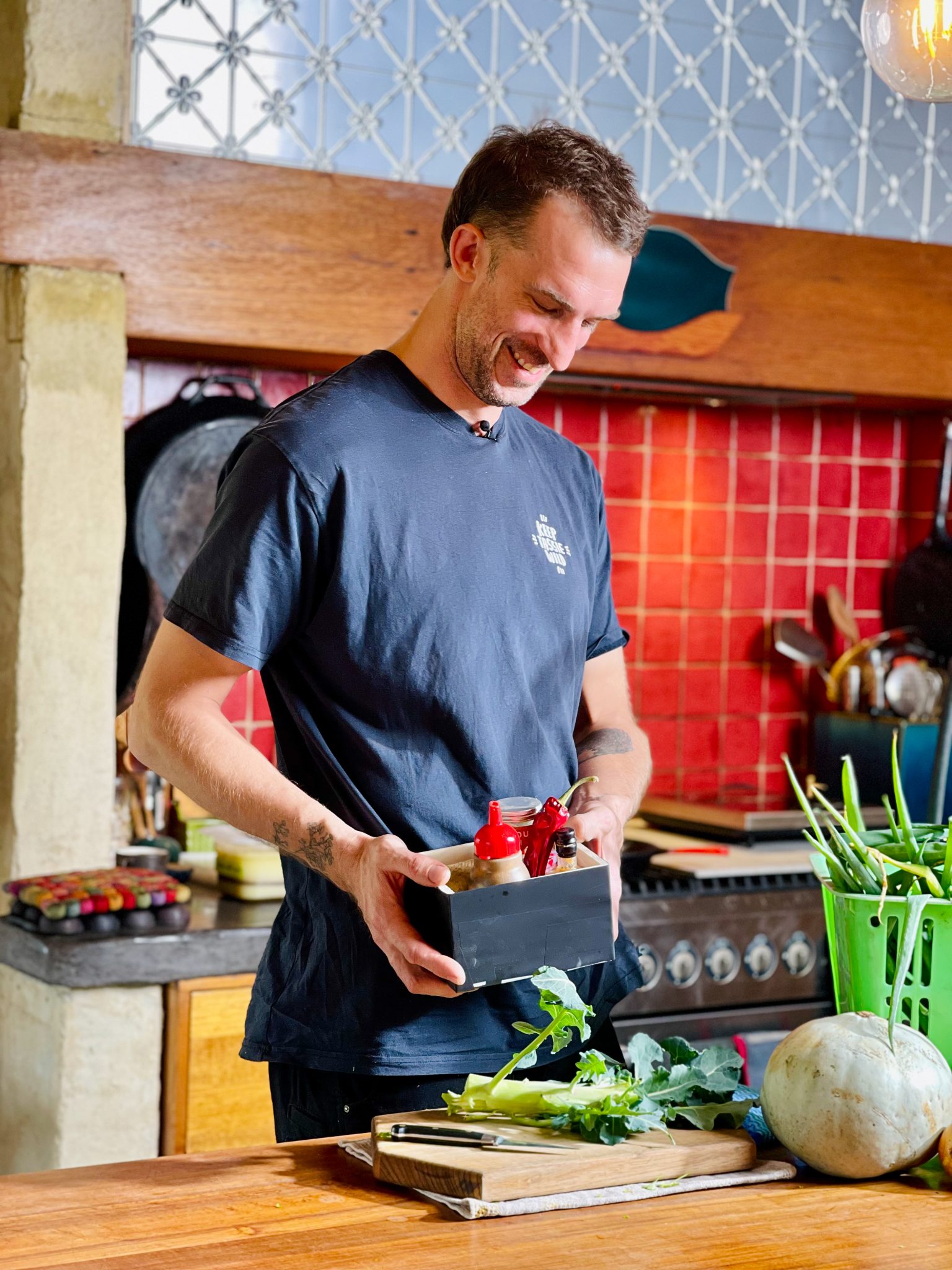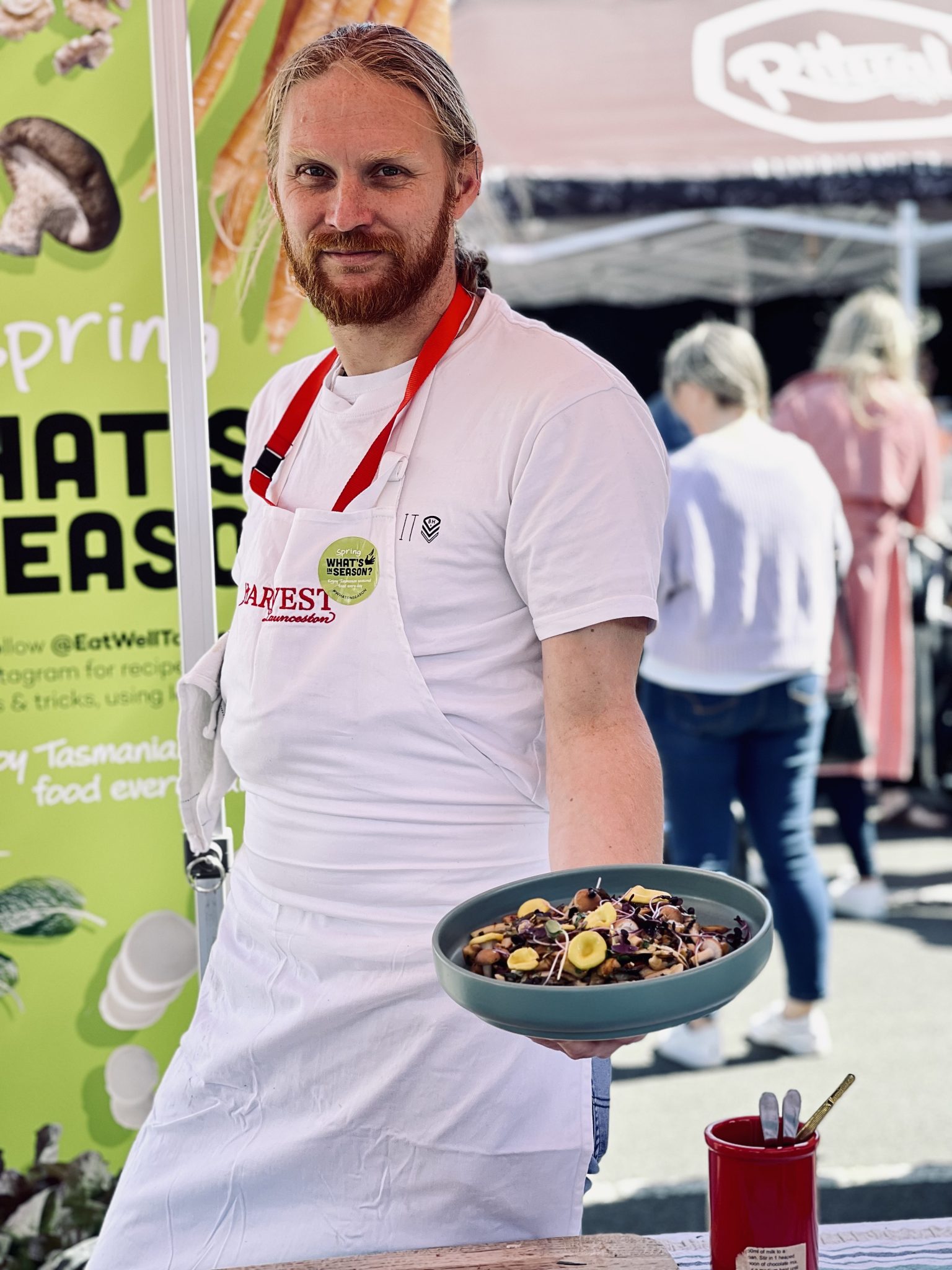We spoke to Jay from Pigeon Whole Bakers as part of Don’t Bin Your Bread – a story about reducing food waste.
How did you get started baking?
I’ve been baking for 15 years now. Going back to the early days, it was like this very simplistic yeasted dough. I really wanted to go back to the roots of baking in a woodfired oven. I started to experiment with sourdough and then I got the ‘baking bug’. I got to the point of like, I need to learn more. I was enjoying the process and watching our customers enjoy it.
You call yourself a ‘traditional Baker’, what does that mean exactly?
We basically bake in the old style of sourdough bakery, where we’re using minimal ingredients, focusing on good quality flour, and old techniques that have been around for a long time. Baking is a wild journey. You’re working with raw natural ingredients, and there are nuances in our flour, season to season. It takes about two days to three days to make each loaf, so there’s a lot of time in between with mixing, resting those, and baking those to get to our customers.
I’m blown away by the many hands that make one loaf of bread. How many people are involved?
The team is just incredible. From delivery drivers, the people that wash the dishes, the bakers, the pastry team, our retail team, the management behind the teams. There are so many people involved now we have over 60 employees in the game. There’s been a lot of learning curves over the last 14-15 years to get to this point.
How did you decide which types of breads you wanted to make?
The breads were designed basically by thinking about how people would use them first. We’ve added a few extra things along the way but essentially, a lot of our core range hasn’t really changed. We went for a classic sourdough style, that’s something the kids and the parents can enjoy. There’s also a rye and molasses bread that’s good for sandwiches, but also for cheese and charcuterie.
How do you think eaters can reconnect to their food?
When you’re about to potentially throw away a loaf of bread– take a moment to think about the process and the journey of the loaf, the amount of people and invested skill that have been behind getting that to your table. To then just pick that up and disregard it is at the end of the day, pretty disrespectful. Don’t do it!
When looking at food waste, households are the biggest culprit. Do you have any tips for eaters to help avoid this?
If you realise that you’ve got too much bread – cut it up into single portions and put them in a ziplock bag in the freezer. Bread will stay well up to six months in the freezer. If you feel like all that loaf has been there for a few days – before you go buy another one, do something with that one. Make some croutons with some olive oil, some salt, and herbs out of the garden. You can put them into a little sealed glass jar in the cupboard and label it for later – and make sure you use them!
What’s next for you and Pigeon Hole?
I think baking is ingrained in me now. I love working with a team and instilling my knowledge. I’m going to be doing this for a while. I’m not going anywhere. We’re playing in the league. That’s where we decided to play and that’s our job. Honestly, from the outside we make it look easy. We are professionals, and we just love it.




